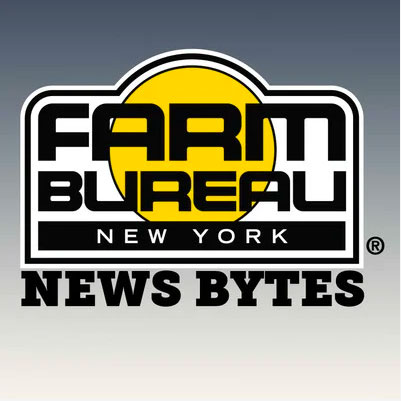Gen Z Report Aims to Help Ag Sector Communicate with New Consumers
80% say Food Purchases are Based on a Social Media Influencers’ Recommendations
by Steve Ammerman
NYFB Director of Communications
It seems that with each new generation brings new challenges and opportunities for farmers to connect with their customers. The up-and-coming Gen Z is no different. They approach food, communication, and farming with a unique set of values.
The Center for Food Integrity, a coalition of food, consumer, and agricultural companies and organizations, released a report last month on Generation Z and found it is poised to change the face of food. CFI conducted digital ethnography, quantitative research and immersive Gen Z experiences, for a 360-degree look at this unique segment and how to engage to earn trust.
For starters, who is Gen Z? They were generally born between the mid-1990s to the mid-2010s, making them 12 to 25 years old. The age group is about 20% of the current population. They greatly influence their parents’ purchasing decisions, but by 2030 will have $33 trillion of their own purchasing power. In other words, they will have increasing clout in the economy.
Gen Z is the most racially and ethnically diverse generation too. According to Pew Research, Gen Z represents the leading edge of the country’s changing racial and ethnic makeup – with 52% non-Hispanic White, 25% Hispanic, 14% Black, 6% Asian and 5% a different race or two or more races. The U.S. Census Bureau projects that by 2026, the majority of this generation will be non-White.
Gen Z also thinks very differently about the products they buy – including food and beverages. “They are driven by social causes, including environmental and social justice issues. This means they support brands that align with their values,” said Roxi Beck, CFI Consumer Engagement Director, who led the Gen Z initiative. “They value technology used to produce food, and view food as a form of self-expression and identity.”
All of this makes the generation a group that agriculture must better understand in order to communicate with and eventually market to in order to be successful.
New York Farm Bureau spoke with Beck to further understand the report and what our members should know about it. She said that if we don’t invest in understanding what motivates them, what is exciting them, and what they’re fearing, then we lose. It’s essential because farmers produce for their customers. And if you don’t know what your customer wants or understand what they will buy, that will hurt a farmer’s bottom line.
It helps to know how the age group communicates, differently than any generation before it. This is the first group to grow up not knowing life without a smartphone. About 98% have one of their own and spend three hours a day, on average, on social media platforms. Half use messaging apps for three hours a day as well. 75% are on YouTube with two-thirds on Instagram and TikTok. And 80% say they purchase food and other products based on social media influencers’ recommendations.
“We need to be in this space. And I always encourage people, if you don’t want to be on any other platform, but Facebook awesome, at least be willing to share your story, show the pictures, talk about it in that space,” said Beck. “But where others are willing and want to dive into the new platforms or the platforms that are most visited, empower them to do it because we need all of the voices in agriculture and will benefit by being there.”
Gen Z consumers are also looking to food to do different jobs for them than previous generations. They are looking to food not only for sustenance – they want it to positively impact long-term health for the body and the mind, they want it to be produced sustainably for the future of our planet, according to Beck.
Importantly, they are proponents of technology and innovation as they have many examples of how life is improved through innovations.
“Be forthcoming with the role of technology in food production and how it directly relates to consumer goals. They see innovation as critical to solving global challenges. Sharing examples of your efforts and progress demonstrates your commitment to sustainability,” said Beck.
For agriculture organizations looking to recruit and retain Gen Z farmers and ranchers, Beck says to provide opportunities early and often so they are connected and understand that they can have an impact. Offer development and training opportunities to empower engagement outside of agriculture. And make sure other generations take into consideration the new perspective Gen Z brings that can help the industry advance.
When engaging the Gen Z workforce, showcase your company values, get them involved in initiatives that support company culture and community engagement, and demonstrate that you’re committed to taking steps to impact change.
“Because they want to speak up and be heard, give them a voice in the workplace,” said Beck. “It gives them a sense of belonging, which research shows improves longevity.”
To learn more about Generation Z, the CFI report, and how agriculture can better engage with the consumers and employees of the future, listen to New York Farm Bureau’s News Bytes Podcast with Roxi Beck. The podcast is available at any of the popular sites where you download your favorite podcasts.



